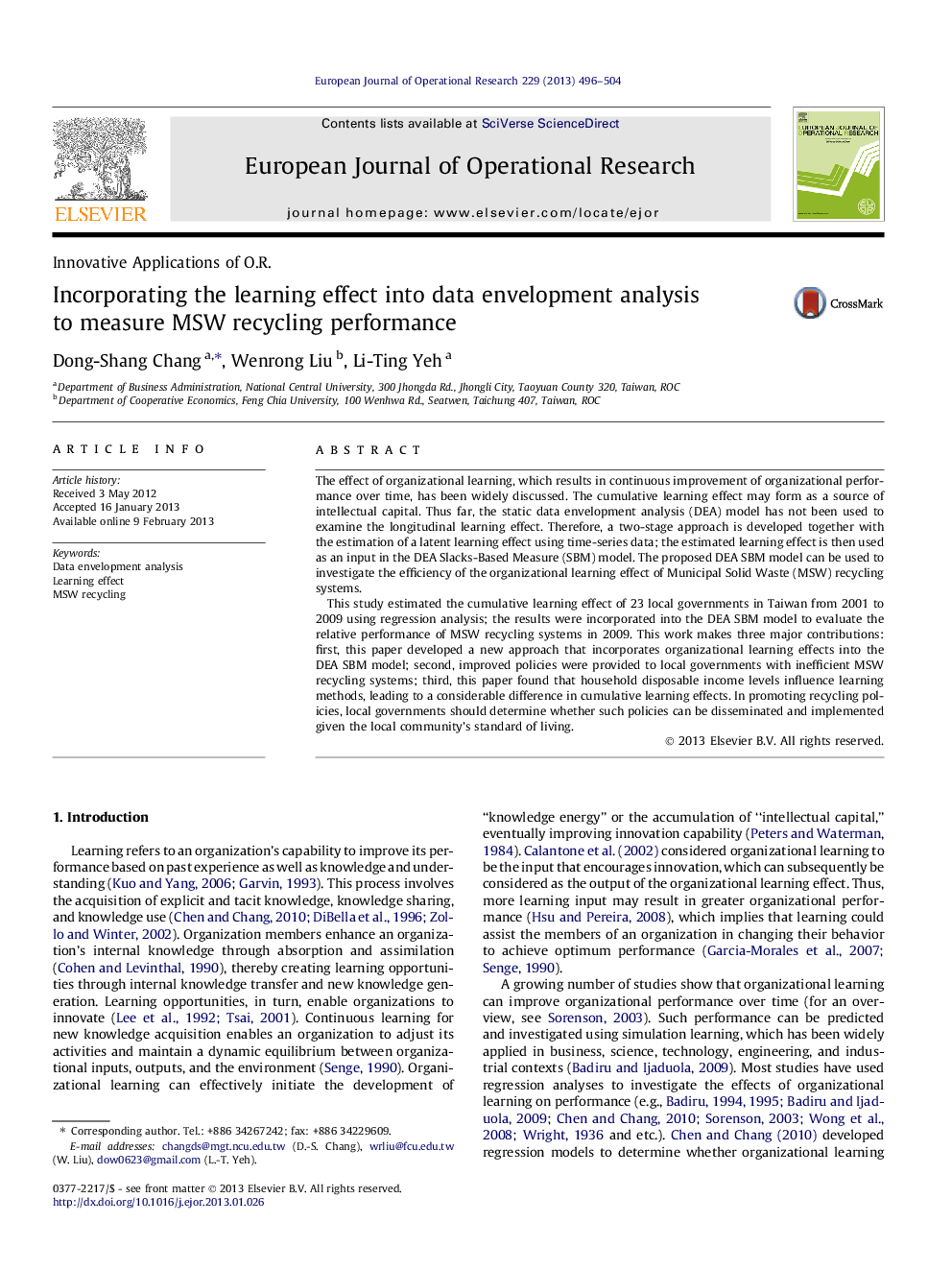| Article ID | Journal | Published Year | Pages | File Type |
|---|---|---|---|---|
| 476736 | European Journal of Operational Research | 2013 | 9 Pages |
The effect of organizational learning, which results in continuous improvement of organizational performance over time, has been widely discussed. The cumulative learning effect may form as a source of intellectual capital. Thus far, the static data envelopment analysis (DEA) model has not been used to examine the longitudinal learning effect. Therefore, a two-stage approach is developed together with the estimation of a latent learning effect using time-series data; the estimated learning effect is then used as an input in the DEA Slacks-Based Measure (SBM) model. The proposed DEA SBM model can be used to investigate the efficiency of the organizational learning effect of Municipal Solid Waste (MSW) recycling systems.This study estimated the cumulative learning effect of 23 local governments in Taiwan from 2001 to 2009 using regression analysis; the results were incorporated into the DEA SBM model to evaluate the relative performance of MSW recycling systems in 2009. This work makes three major contributions: first, this paper developed a new approach that incorporates organizational learning effects into the DEA SBM model; second, improved policies were provided to local governments with inefficient MSW recycling systems; third, this paper found that household disposable income levels influence learning methods, leading to a considerable difference in cumulative learning effects. In promoting recycling policies, local governments should determine whether such policies can be disseminated and implemented given the local community’s standard of living.
► A new approach is developed that incorporates organizational learning effects into the evaluation of efficiency. ► Improved policies were provided to local governments with inefficient MSW recycling. ► Local governments should take care in determining whether MSW recycling policies can be implemented relative to their living standards.
